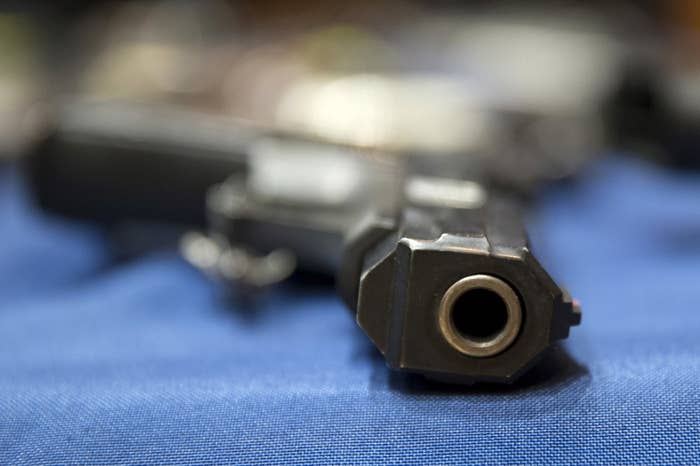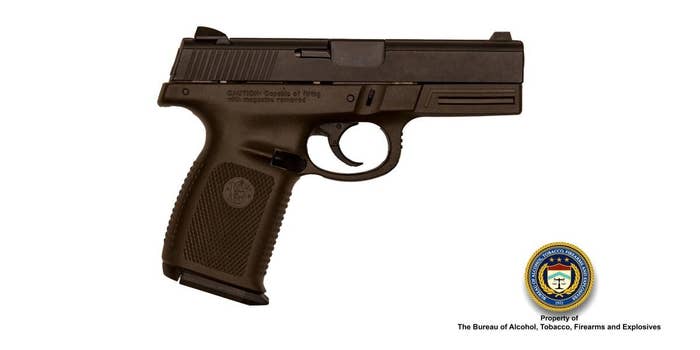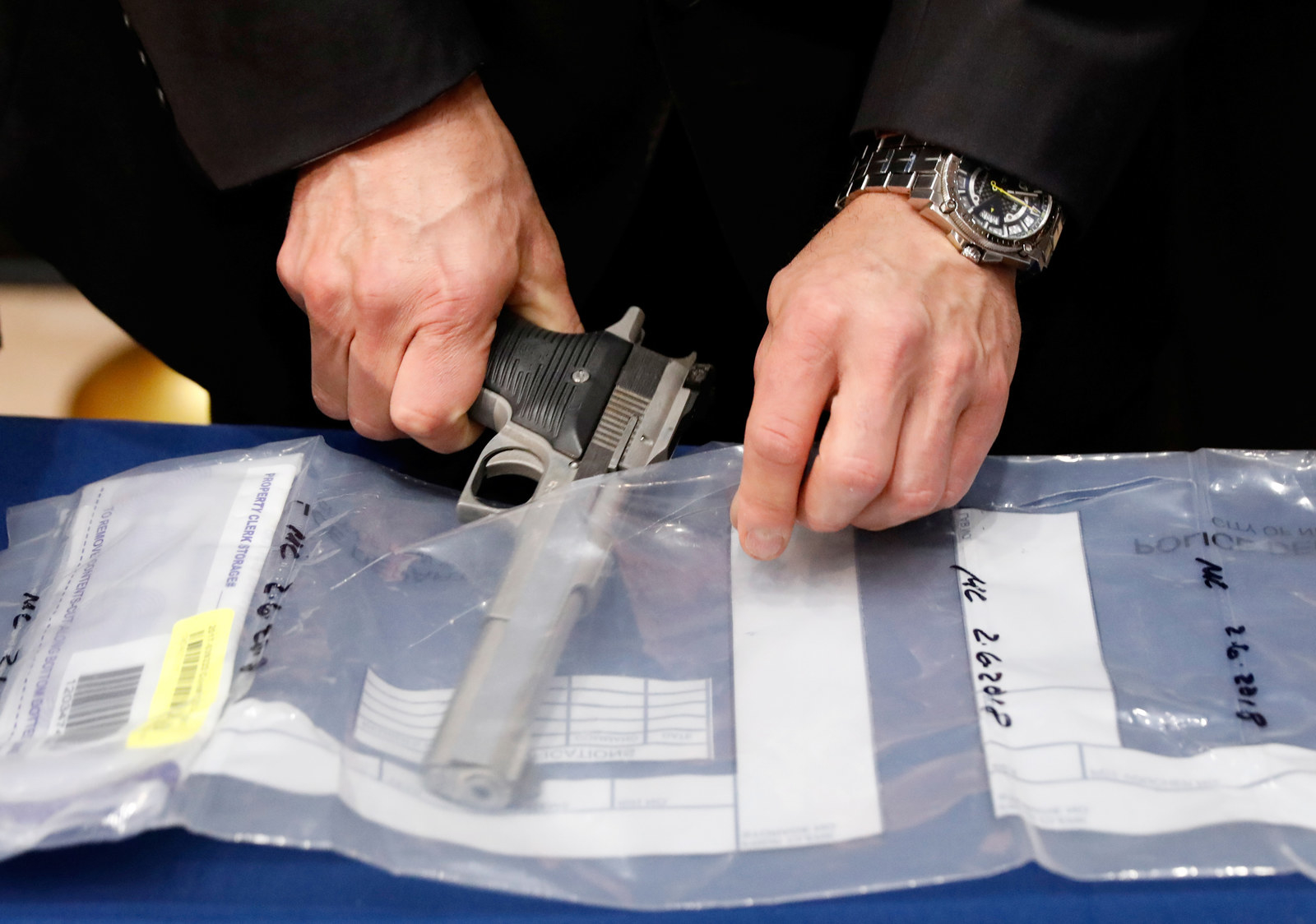
Criminals pay hundreds of dollars above retail prices when buying handguns on the black market, according to a first-of-its-kind study of gang members and guns traffickers in Boston.
Most gang-related murders and felonies involve illegal guns, according to federal crime data, and gang members commit from 1,000 to 4,000 murders a year.
The new report, published in the journal Criminology, adds to evidence that gang members get their guns mostly from loose networks of traffickers, rather than theft or from friends.
More provocatively, the research suggests that laws banning convicted felons from buying guns drive up their prices on the street, making it somewhat harder for criminals to get any gun at all.
“The pricing information they showed is fundamentally good news. If guns were as easy to get as most people think, then we would not see that kind of premium on them, a huge price mark-up,” David Kennedy, director of the National Network for Safe Communities at John Jay College of Criminal Justice told BuzzFeed News.
“If we made it even a little harder, there might be a lot less trafficking," he added.
Over the summer and fall of 2014, researchers in Boston, a city with fairly strict gun laws and low gun ownership, analyzed records of 2,200 handguns recovered by police. The researchers compiled traces of the guns’ serial numbers and found that most of them originally came from legal sales by licensed firearms dealers in many states along Interstate 95, from Virginia to Maine. All of those states have more lax gun laws than Massachusetts, which requires sellers to notify the state of gun sales not only for new weapons but also for all subsequent purchases.

The researchers also interviewed six members of gangs and informal “hustler” groups about 86 guns they had bought or sold. The interviewees were all black men in their twenties or thirties who used guns both to defend themselves and to commit crimes; all had been shot once and had witnessed friends shot. Only one had a valid license to own a handgun.
“The gang members were quite knowledgeable about guns — they were gun enthusiasts in a real way,” study lead author David Hureau of the University at Albany, SUNY, told BuzzFeed News. (He carried out the research while a graduate student at Harvard, collaborating with criminologist Anthony Braga of Northeastern University.)
About 90% of the men’s guns were originally bought legally and then later diverted to the black market, the study suggested. The men on average paid $649 for a handgun on the street, typically paying at least double the price of a similar gun bought legally. The lowest price they paid for a gun was $200 for a used revolver, and the highest was $1,100 for a new, lightweight, semiautomatic pistol that would have cost just $400 if bought legally from gun dealers online.
The study was supported by groups opposed to gun violence, such as the Fund for a Safer Future and Everytown for Gun Safety. (The federal government has not researched the root causes of gun violence since 1996, and Congressional Republicans rejected a $10 million budget proposal to resume Centers for Disease Control and Prevention studies earlier this month.)
Rather than a vast, bazaarlike black market for illegal guns, the interviews showed that informal social connections tend to drive these sales. “The ability to get a gun depends on who you know,” Hureau said.
More than one-quarter of the men’s guns were 9 mm pistols — concealable, rapid-reloading handguns that might carry 10 to 15 bullets in a magazine, but the preference was for higher-power, high-caliber pistols that were also concealable while being less prone to jamming. The gang members were professionally engaged in the project, he added, wanting to know how much guns cost in various parts of the city.
“We don’t normally think of the interest in concealed carry in gun-enthusiast circles trickling down to gang preferences, but that is what our data showed.” It made a kind of sense as the men were regularly engaged in cycles of life-threatening violence, he added: “They need to both carry and conceal their guns.”

Although illegal guns were generally more expensive than legal ones, there was one interesting exception: Expensive guns prized by collectors have similar value on the street and in stores.
That makes sense, gun researcher and economist Philip Cook of the Sanford School of Public Policy at Duke University told BuzzFeed News. Why pay more for a fancy gun you might have to toss away after a crime or lose to police confiscation?
“Having this kind of price data on illegal guns sales is really valuable,” Cook said. “It tells us gun traffickers are really small time — more part of a gig economy than organized.” Otherwise, the prices would be lower and track the open market better.
The six interviewed gang members led the researchers to one trafficker, a middle-aged black man who had shuttled about 80 guns to Boston over four years from business trips south, netting $800 to $1,200 a trip, which he used to pay his mortgage and buy real estate. On each trip, he had bought two secondhand guns from the same dealer at gun shows, mostly high-powered semiautomatic pistols that the dealer selected for him. (When asked if the gun dealer knew where the guns were going, the man first said, “He knows, but he doesn’t know,” and then, “he knows, he knows.”)
A nationwide law mandating universal background checks and record-keeping for all gun sales would likely reduce such trafficking, the study authors concluded. Gun sales advocates such as the National Rifle Association have opposed such measures, arguing criminals would still find ways to get guns.
“The illicit gun market they describe [in the study] is really diffuse — it’s more like kids selling each other weed in high school than the Cali cartel,” said Kennedy of John Jay. “This kind of trafficking is possible because it is so easy.”

